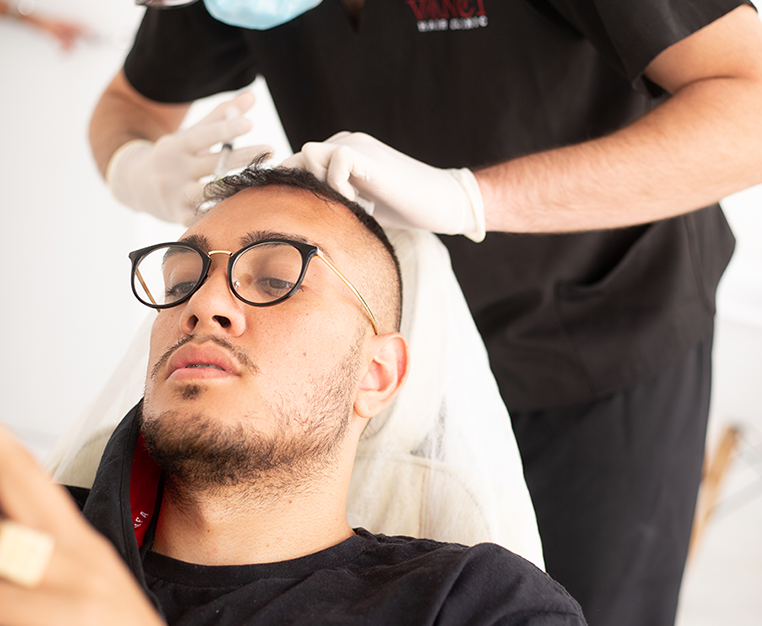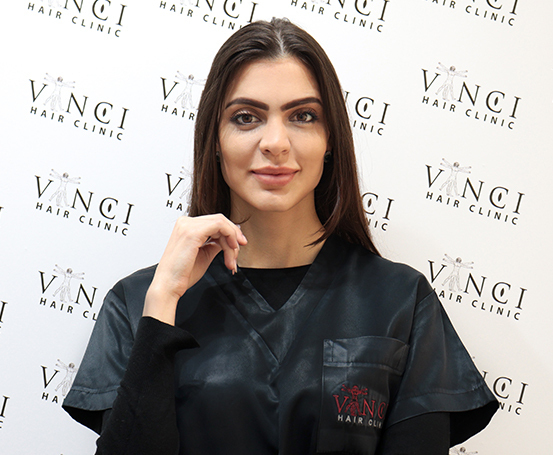Have you been wondering why your hair hurts when you brush it? It could be that you have a sensitive scalp. If you have sensitive skin, there’s a good chance your scalp will be the same, since it’s simply part of your skin. It’s treated the same way, too. You might need to modify your hair care routine and pick new products if you struggle with scalp irritations. If you’re unsure where to begin, read on to learn about some common causes of a tender scalp and the best ways of dealing with one.
Common Causes Of Sensitive Scalp
Before we go ahead and talk about the causes of sensitive scalp, let’s take a short detour and discuss a few of the symptoms to look out for. The first thing to note is that there are several different signs of a sensitive scalp. An investigation by America’s National Center for Biotechnology Information (NCBI) identified the following as some of the top signs of an irritable scalp:
- Prickling
- Burning
- Stinging
- Dry scalp
- Painful hair brushing or combing
If you are experiencing any of those symptoms, chances are you have a sensitive scalp. Next, you’ll learn about the key factors that can trigger scalp sensitivity.
Environmental Conditions
The weather can wreak havoc on your skin and hair, causing dryness and leading to scalp sensitivity. Exposure to the sun is one of the chief culprits, followed closely by the wind and the cold.
Protect your mane and scalp when you are out, especially during the couple of hours after midday when the sun is at its peak.
Stress
Stress is another typical cause of a sensitive scalp. Cortisol is a stress hormone, and the levels of it in your body increase when you are undergoing a stressful period in your life.
If you experience a sudden onset of oily scalp or hair, it’s highly likely that stressors are wreaking havoc with your body. Fungus, bacteria and itchy or flaky scalp conditions all have links to stress. Cortisol even affects hair follicles and is a common cause of temporary hair loss, a condition known as telogen effluvium.
Water Quality
Water quality can affect your scalp and sometimes lead to irritation. If you live in a hard-water area, you may see soap scum or marks in the bath when you wash your hair. This type of water can result in scalp buildup or an oily scalp.
Chlorine from the swimming pool or seawater can dry out your hair and trigger sensitivities in your scalp. Always rinse your hair thoroughly after swimming, therefore. Do the same after shampooing your hair.
Hair Care Products
Many people who develop scalp irritations or a sensitive scalp will find it’s often after starting to use a new shampoo or conditioner. Even cosmetics and soaps can trigger sensitive scalp; some of the ingredients they contain are known sensitisers.
If you experience any scalp sensitivity after switching to a new hair product, stop using it immediately. If symptoms persist, consult a trichologist.
Caring For A Sensitive Scalp
Luckily, caring for a sensitive scalp is easier than you think, though you’ll need to change up a few things. The tips below will help you manage or eliminate scalp sensitivity. It’s all about paying attention to your scalp, the environment around you and your hair care habits.
Turn Down Your Shower
We all love to linger in a hot shower first thing on a cold morning, but while a hot shower can help you ease into your day, the extreme temperature isn’t that great for your scalp. So, turn down the water temperature when you wash your hair and go for lukewarm instead of red hot or icy cold.
Embrace Sun Protection
It may seem such an obvious precaution to take but protecting your scalp from direct sunlight is one easy way to avoid scalp sensitivity. Sun exposure will often trigger scalp sensitivity and cause sunburn.
Take precautions and protect your scalp from the sun by staying in the shade, wearing a hat, or sporting a protective hairstyle.
Mindful Hairstyling
We all have a favourite hairstyle, the one we identify with most and which flatters our features. Although the style you wear may not have a direct impact on your scalp’s sensitivity, choosing the ‘wrong’ style may make the condition worse.
Cornrows and other braiding styles tend to pull on your hair and scalp if they are too tight. Choose low buns, half-up options or loose ponytails and secure these with claw clips. These styles are effective at taking the pressure off your strands and scalp.
Don’t use elastic bands when tying your hair up. Silk or soft velvet scrunchies are kinder to your hair shafts.
Turn To The Professionals
If you have taken the steps outlined in this article but your scalp is still giving you problems, it’s time to visit a specialist. Vinci Hair Clinic can offer professional dermatologist support with your scalp and hair health. If you’re experiencing sensitive scalp or hair loss, book your free consultation today to start your journey to beautiful hair and a healthy scalp!



